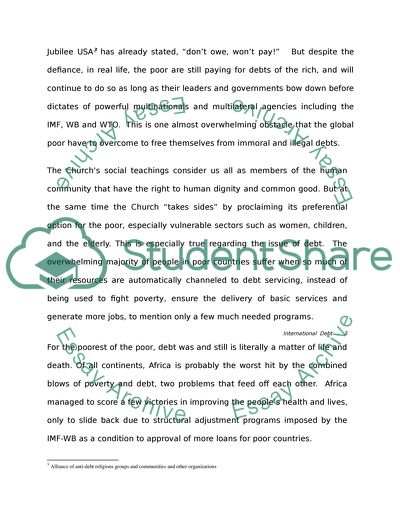Cite this document
(“Poverty and Debt in Third World Countries that directly or indirectly Essay”, n.d.)
Retrieved from https://studentshare.org/miscellaneous/1500246-poverty-and-debt-in-third-world-countries-that-directly-or-indirectly-work-to-the-benefit-of-developed-countries-and-how-the-principles-of-catholic-social-doctr
Retrieved from https://studentshare.org/miscellaneous/1500246-poverty-and-debt-in-third-world-countries-that-directly-or-indirectly-work-to-the-benefit-of-developed-countries-and-how-the-principles-of-catholic-social-doctr
(Poverty and Debt in Third World Countries That Directly or Indirectly Essay)
https://studentshare.org/miscellaneous/1500246-poverty-and-debt-in-third-world-countries-that-directly-or-indirectly-work-to-the-benefit-of-developed-countries-and-how-the-principles-of-catholic-social-doctr.
https://studentshare.org/miscellaneous/1500246-poverty-and-debt-in-third-world-countries-that-directly-or-indirectly-work-to-the-benefit-of-developed-countries-and-how-the-principles-of-catholic-social-doctr.
“Poverty and Debt in Third World Countries That Directly or Indirectly Essay”, n.d. https://studentshare.org/miscellaneous/1500246-poverty-and-debt-in-third-world-countries-that-directly-or-indirectly-work-to-the-benefit-of-developed-countries-and-how-the-principles-of-catholic-social-doctr.


